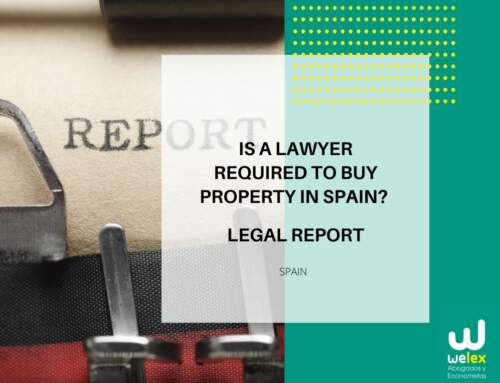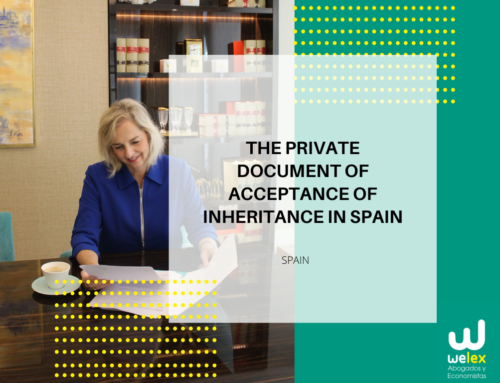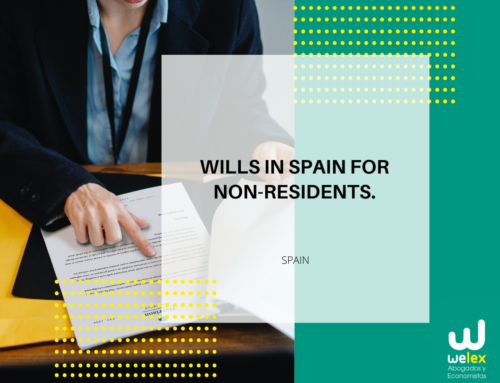If you’re a resident of a European Union country and own property in Spain, it’s highly advisable to establish a will before a Spanish notary. While not mandatory, doing so can prevent potential legal complications for your heirs.

Why Should You Draft a Will in Spain?
The enactment of European Regulation No. 650/2012 on July 4th, which governs succession within the EU and introduces a European Certificate of Succession, makes it crucial to specify in your will which law applies to your estate. You can choose either the law of your nationality or that of your last habitual residence.
Even if you already have a will in your home country, complications may arise during its execution, especially concerning its interpretation and recognition in other countries. Your heirs might need to legalize a foreign will, prove it’s your last will, have it translated into Spanish, and obtain an apostille per the Hague Convention. This process can be cumbersome and time-consuming.
For wills made before August 17, 2015, in your country of residence or nationality, there’s a possibility they don’t fully comply with the European Regulation. Often, there’s no clear choice of applicable law: either the law of your last habitual residence or that of your nationality. Our law firm, Welex, can assist in reviewing and adjusting your will to align with current regulations.
By drafting a will in Spain, you can explicitly designate your heirs. You can specify that the will applies only to your Spanish assets and is in accordance with the laws of your nationality or residence, depending on the chosen applicable law.
Advantages of Drafting a Will in Spain
- Cost-Effectiveness: Without a will, heirs may face complex legal procedures to determine rightful inheritance and respective shares. The cost of drafting a will is typically much lower than the expenses and efforts your heirs would incur without one.
- Time Efficiency: A Spanish will saves your heirs considerable time and administrative work. Note that inheritance tax in Spain must be paid within six months of death.
- Clarity and Legal Certainty: By specifying your wishes clearly, you minimize potential disputes among heirs and ensure that your estate is distributed according to your desires.
Potential Risks of Not Having a Spanish Will
If you pass away without a will in Spain, or while spending part of the year here, Spanish courts might determine that your inheritance should be distributed according to Spanish law, which imposes certain restrictions.
In Spain, the estate is divided into three equal parts when there are forced heirs (children or descendants, spouse, and/or ascendants):
- Strict Legitimate Third (Tercio de legítima estricta): This portion is untouchable, reserved obligatorily for children and descendants (or parents if there are no descendants). It’s divided equally among all children, without the testator being able to modify this distribution.
- Improvement Third (Tercio de mejora): Also belonging to forced heirs, but the testator has the freedom to decide who benefits more among them. It can be used to “improve” one or more children or descendants. The usufruct of this third can be assigned to the widower (or widow).
- Free Disposal Third (Tercio de libre disposición): The only portion the testator can freely assign to anyone, whether or not they are forced heirs.
Without a will, your estate will be distributed according to these rules, which may not align with your personal wishes.
How Welex Can Assist You
Our law firm in Marbella is ready to advise you on the formalities of drafting and signing a will in Spain. You only need to provide us with the names of your heirs, your choice of applicable law (national law or that of your last residence), and the distribution of your assets. We recommend limiting the distribution to your Spanish assets, as long as they meet the requirements of your nationality. You’ll receive a draft of the will in two columns: in Spanish and in your national language.
Once everything is clear, we will accompany you to the notary to sign the will. Ensure that your passport is valid at that time.
Prevent future concerns for your family and heirs by drafting and executing a will in Spain. At Welex, Lawyers & Accountants in Marbella, we are here to answer all your questions on this matter.
Related Articles from Welex
- Wills and Inheritance Lawyers in Marbella
- Spanish Wills & Inheritance: Keep it simple: Make a will in Spain
- Inheritances in Spain and its Phases
- Definitive Guide for Inheritance Tax in Andalusia
- Changes in the Spanish Inheritance Tax in Andalusia
By consulting these resources, you can gain a comprehensive understanding of the importance of drafting a will in Spain and the legal intricacies involved.






Social Media